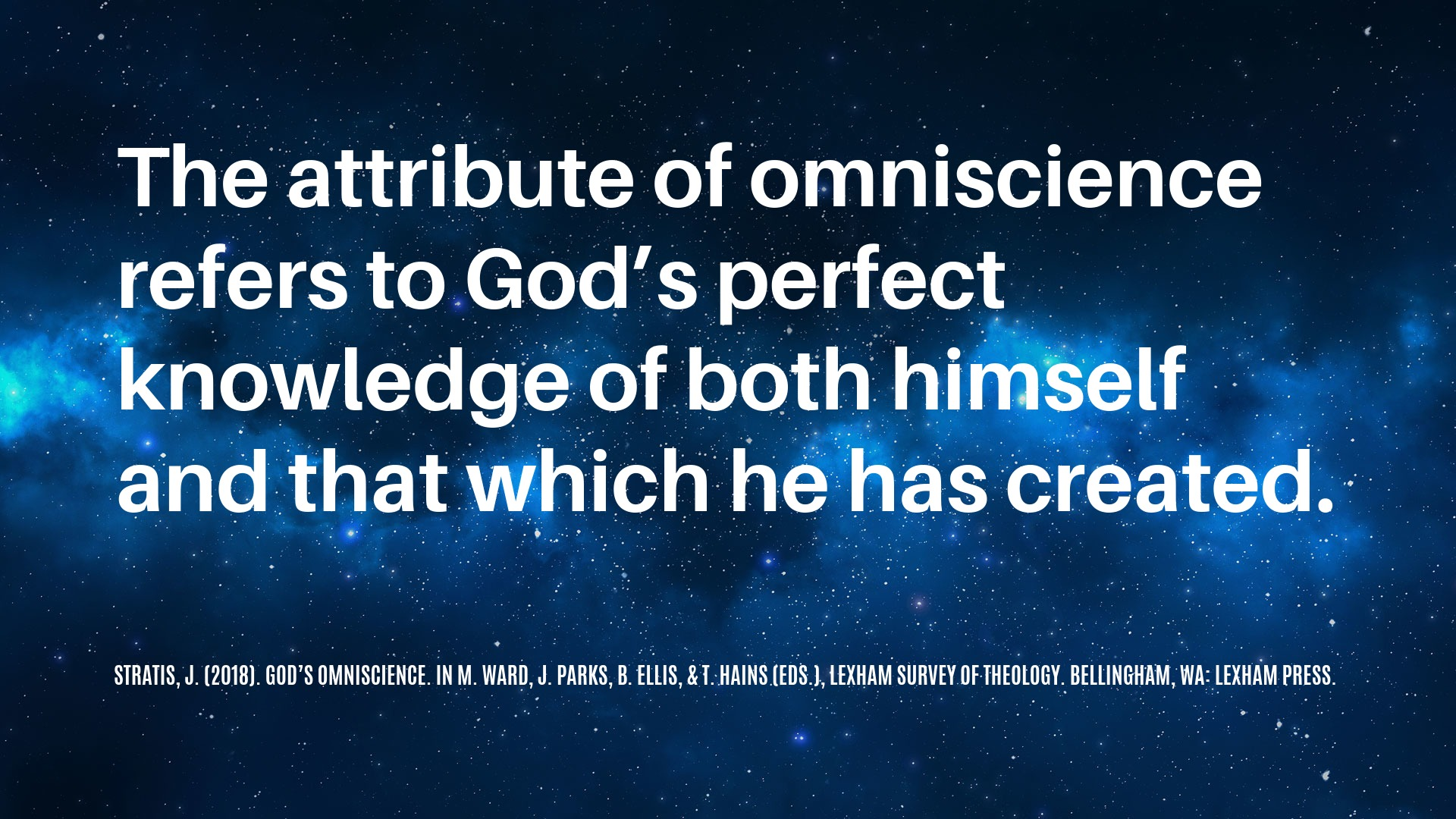We serve an omniscient God. This definitional attribute of His deity has implications for us as believers. Let us take a few minutes to consider God's omniscience and what it means to us.

The fact that God is all-knowing means that He is never taken by surprise. He knew each and every one of us exhaustively, along with every element of creation (past, present, and future) from before the foundation of the world. It's important to understand that time itself is also a part of creation. God is not bound by time as man is. He exists outside of it and chooses to enter into it to interact with us.
For us, the past has already happened, the future is not yet, and we are perpetually in the present. However, our past, present, and future are all equally accessible to God, who exists outside of time. All of time is, in a sense, concurrent from the perspective of one who is independent of it. Nothing is outside of His awareness and control.

God knows us so much better than we could ever know ourselves. We can take comfort in the fact that He has a plan for us, which includes the redemption He has freely given us in Christ Jesus as His followers. His perfect and complete knowledge gives us confidence that His plan takes everything into account. There can be no unexpected curve in the road that would unsettle His plans for us. Nothing will ever happen that he has not permitted and decreed. He is truly working everything together for our good.

The scriptural evidence for God's complete and exhaustive knowledge of all things is plentiful.
God’s knowledge indicates that in a unique way God knows himself and all things possible and actual. Omniscience means that “he knows everything” (1 Jn 3:20). “Even before a word is on my tongue, lo, O Lord, thou knowest it altogether” (Ps 139:4), the secret thoughts of a person’s heart. God’s righteous judgment is rooted in the fact that he “knows the thoughts of man” (Ps 94:11).
Acknowledging that God’s omniscience is incomprehensible, the psalmist finds it a source of comfort (Ps 139:1–5). All the “treasures of wisdom and knowledge” are hidden in Christ (Col 2:3); therefore the Christian is told to bring every thought captive to obey Christ (2 Cor 10:5). Christian sanctification includes renewal in knowledge to become more like Christ (Col 3:10).
(Elwell, W. A., & Beitzel, B. J. (1988). God, Being and Attributes Of. In Baker encyclopedia of the Bible (Vol. 1, p. 878). Grand Rapids, MI: Baker Book House.)
As Pastor Charles Spurgeon reminds us in his first published sermon, since God is immutable, His divine attributes never change. He has always had perfect knowledge of all things and He always will.
Charles Spurgeon - Omniscience Video





Join the conversation